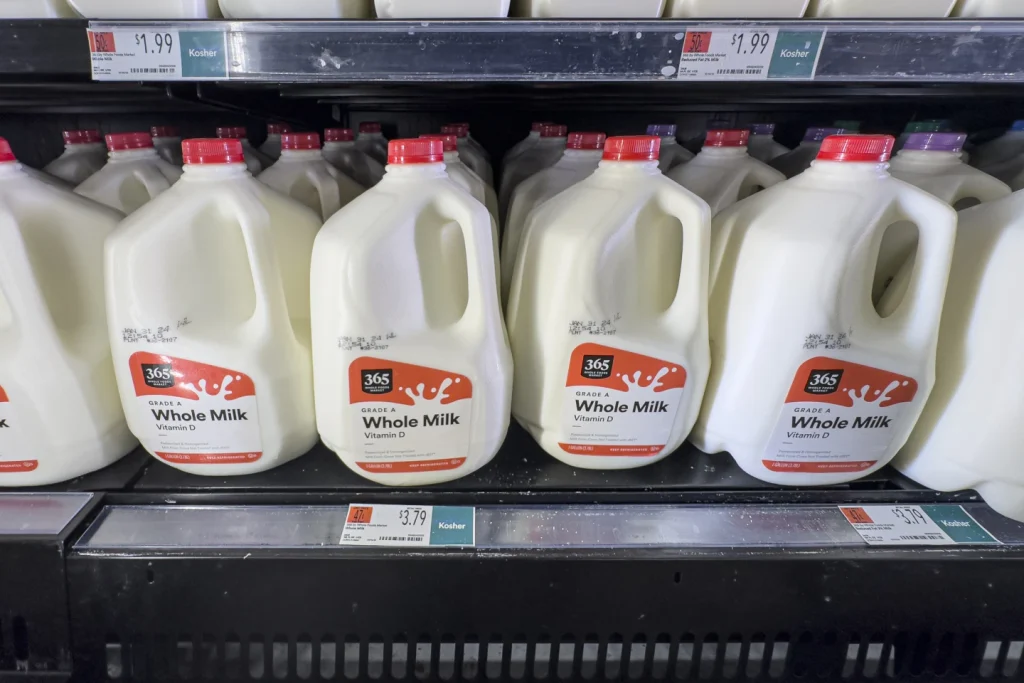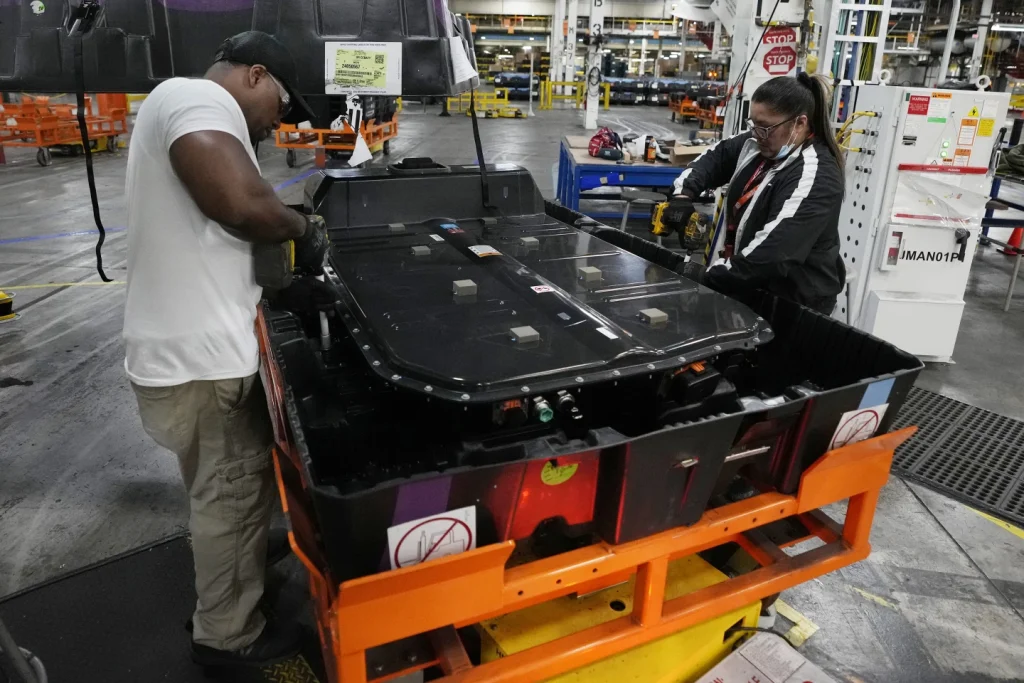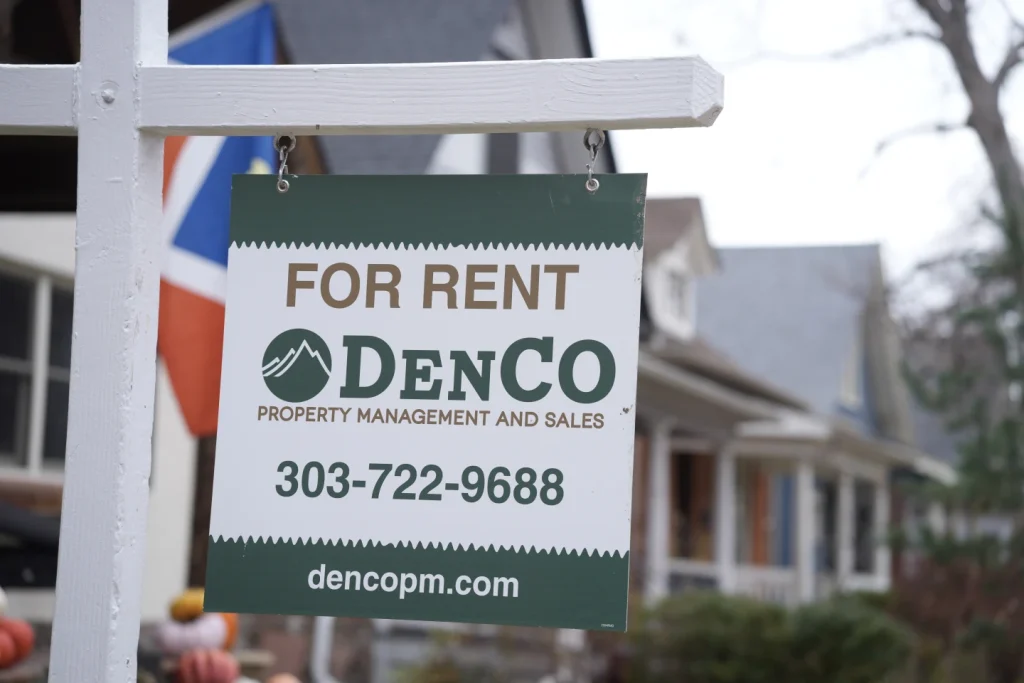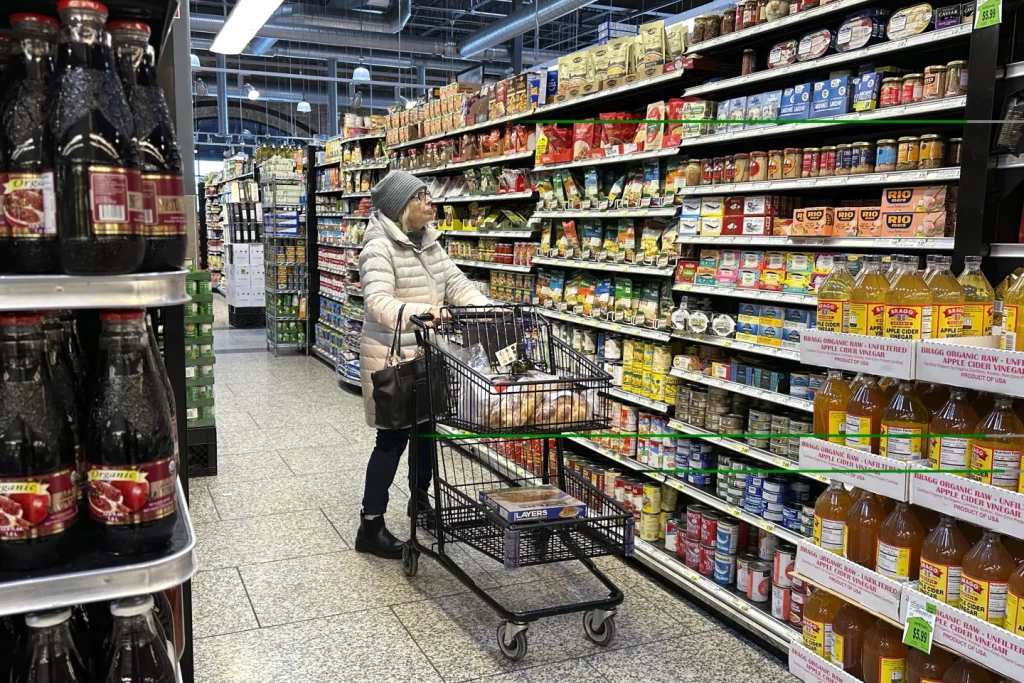In recent times, there has been a notable shift in the sentiment of the American populace regarding economic conditions and inflation.
This shift holds the potential to significantly impact consumer spending, drive economic expansion, and even influence the political landscape, potentially affecting President Joe Biden’s standing.
According to a recent measure of consumer sentiment conducted by the University of Michigan, there has been a substantial surge over the past two months, marking the most significant increase since 1991.
Similarly, a survey carried out by the Federal Reserve Bank of New York has revealed that Americans’ expectations regarding inflation have reached their lowest point in almost three years.
Furthermore, the same survey, released just last week, highlighted that the proportion of individuals anticipating an improvement in their personal finances a year from now has reached its highest level since June 2021.
Economists are attributing this shift in sentiment to several factors, including a gradual deceleration in inflation, augmented incomes, reduced gasoline prices, and a buoyant stock market.
Notably, inflation has receded from its peak of approximately 9% in June 2022 to a more manageable 3.4%. Furthermore, according to the Federal Reserve’s preferred price gauge, inflation has aligned with the Fed’s annual 2% target when measured over the past six months.
This confluence of factors has contributed to a palpable improvement in consumer outlook, potentially heralding a period of sustained economic growth and bolstered consumer confidence.
Despite the gradual deceleration in inflation, prices have remained almost 17% higher than they were three years ago, leading to widespread dissatisfaction among many Americans.
While certain individual goods have become more affordable, overall prices are expected to continue to exceed their pre-pandemic levels.

This paradox—marked by a rapid decrease in inflation alongside persistently high living costs—will likely pose a pivotal question in the minds of voters, many of whom are still grappling with the enduring financial and psychological repercussions of the most severe inflationary episode in four decades.
The upcoming presidential election may hinge on the relative significance of the substantial inflation decline versus the stark reality that most prices are considerably higher than they were three years ago. Take, for instance, the price of food, a commodity encountered frequently by people.
Although grocery inflation has plummeted from a year-over-year peak of 13.5% in August 2022 to just 1.3%, a typical basket of groceries still commands a 20% premium compared to its February 2021 cost, just before the onset of inflation acceleration.
On average, chicken prices have surged by 25%, while bread and milk are 20% and 18% more expensive, respectively, than their pre-pandemic prices.
Additionally, the cost of renting an apartment has skyrocketed and continues to outpace pre-pandemic rates. Rental expenses have surged by 6.5% from a year earlier, nearly double the pre-pandemic pace. At their peak in early 2023, rents were escalating at an annual rate of almost 9%. T
he substantially elevated costs of essential items such as food and rent continue to impose a significant burden on individuals like Romane Marshall, a 30-year-old software engineer residing on the outskirts of Atlanta.
In late 2020, Marshall embarked on a journey to broaden his skill set by enrolling in computer coding classes, aiming to transition from his previous roles in warehouse and customer service positions.
His efforts bore fruit when he secured a position at a professional services consulting firm in April 2021, an achievement that left him elated.
Following the successful completion of an apprenticeship program the subsequent year, Marshall experienced a significant boost in his income, with his earnings escalating from $50,000 to $60,000.
However, his financial responsibilities continued to mount. Relocating to a new apartment to shorten his commute as his company transitioned from full-time remote work to a hybrid schedule led to a doubling of his rent, soaring from $700 for a room in a friend’s residence to $1,475 per month.
Concurrently, his grocery expenses surged, with his typical bill now ranging from $120 to $130, a stark contrast to the $70 to $80 he used to spend three years prior. To mitigate escalating electricity costs, Marshall adopted a strategy of sparingly using the heating in his apartment.
Reflecting on his circumstances, Marshall acknowledged some favorable developments but lamented the increasing costs.
He noted, “There have been some positive changes, it’s just that things got expensive. The only thing I notice is that the price of food is still high.”
Despite these challenges, some individuals in the United States hold a more optimistic perspective. The job market has remained robust, with sustained solid hiring, as evidenced by the unemployment rate persisting below 4% for nearly two years—a streak unmatched since the 1960s.
Dana Smith, a software developer residing in Matthews, North Carolina, expresses optimism regarding the improving state of the economy.
Both he and his wife have received pay raises, which have effectively countered the price spikes experienced over the past three years. At 40 years old, Smith lives in close proximity to Charlotte, where he and his wife purchased a home three years ago.
The value of their property has since surged by approximately 30%, contributing to their overall household wealth.

Smith perceives a positive trend in the economy, noting its continual improvement. This growing optimism among the public may indicate a renewed enthusiasm for Biden’s candidacy this year, particularly after a period of lackluster polling during his time in office.
However, economist Ryan Cummings, who specializes in analyzing consumer confidence and its correlation with political views, warns that political partisanship could restrict the extent to which public sentiment improves.
He suggests that Americans’ economic outlooks are increasingly influenced by political affiliation rather than the actual performance of the economy.
As the 2024 election progresses and the prospect of a Trump vs. Biden race becomes more apparent, Cummings anticipates that Republicans may become more pessimistic, potentially dampening overall sentiment, irrespective of economic fundamentals.
A recent University of Michigan survey revealed a notable 11.8% surge in consumer sentiment among Democrats in January, marking the second-largest increase of its kind on record.
This spike in optimism closely followed Biden’s presidential victory in 2020. Despite the growing positivity, many Americans still advocate for government intervention to not only curb inflation but also to lower prices to pre-pandemic levels.
Citing a 1997 research paper by Nobel Prize-winning economist Robert Shiller, it is noted that a majority of respondents in a survey agreed that the government should strive to reverse a 20% surge in prices.
However, economists uniformly caution that such an endeavor would necessitate a significant weakening of the economy, likely resulting from drastic interest rate hikes by the Federal Reserve or tax increases, potentially leading to a recession and substantial job losses.
Economist David Andolfatto, formerly of the Federal Reserve and currently affiliated with the University of Miami, advocates for a gradual increase in wages over time to enable people to adjust to higher prices.

He argues against the government’s intervention to reduce the price level, emphasizing the potential pain such a measure could inflict. Claudia Sahm, founder of Sahm Consulting and also a former Fed economist, acknowledges the public’s frustration with soaring prices, but highlights the crucial question of affordability.
While not everyone may currently be able to afford these elevated costs, she anticipates that over time, an increasing number of individuals will be able to answer affirmatively to this question.
